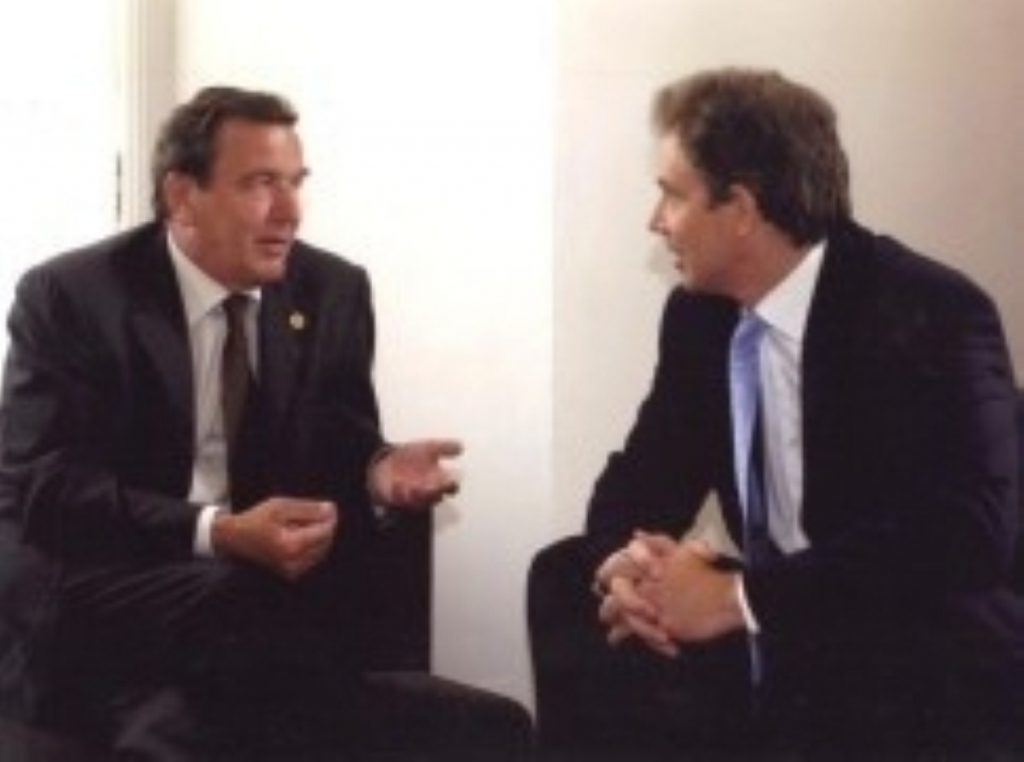Little hooray for ‘third way’
Prime Minister Tony Blair hosted a gathering of centre-left world leaders yesterday in a bid to re-charter the direction of so-called “Third Way” modern social democracy.
Inevitably, the summit of leaders from Western and Eastern Europe and Latin America was overshadowed somewhat by the political aftermath of Iraq war.
The US and ally Britain have thus far failed to secure a consensus over the legitimacy of the military attack on Baghdad given the lack of evidence that Saddam Hussein’s fallen regime had the capacity to launch lethal weapons.
German Chancellor Gerhard Schroeder, South African President Thabo Mbeki, Swedish Premier Goran Persson, Brazilian President Luiz Inacio Lula da Silva and Canadian Prime Minister Jean Chretien were among the 14 leaders who attended the meeting.


Former US president Bill Clinton and a proponent of third way politics was also there joined by Czech Prime Minister Vladimir Spidla and Polish President Aleksander Kwasniewski.
“Third way” political philosophy looks for a way beyond the rigid differences of state socialism and rampant freewheeling capitalism. Advocates claim economic prosperity and social justice are mutually supportive.
At the summit, the leaders pledged to bring down trade barriers which deny poorer countries the right to sell their wares abroad.
The pledge comes ahead of the WTO’s September meeting in Cancun, Mexico.
Mr Blair told colleagues: ‘It is our job to try and find a way of combining economic efficiency and at the same time social justice.
‘The central importance at the Mexico (world trade) meeting is to make sure that it allows the developing world proper access to the markets of the developed world and that free trade moves forward,’ he said.
But a sticking point emerged on Iraq with Germany, Argentina and Chile objecting to a draft conference communique. Mr Schroeder argued it retrospectively gave legitimacy to the invasion of Iraq.
Germany objected to a section of the draft and demanded its removal. It read: “where a population is suffering serious harm as a result of internal war, insurgency, repression or state failure, and the state in question is unwilling or unable to halt or avert it, the principle of non-intervention yields to the international responsibility to protect.”
Prior to the Iraq war, Germany along with France and Russia criticised the US and her allies on the unilateral action taken to oust Saddam Hussein from power. They demanded resolutions from United Nations Security Council endorsing military action. The US could not wait.
From Germany’s viewpoint, the draft appeared to affirm the rightness of non-UN backed military action.
Brazilian President Luiz Inacio Lula da Silva added a certain anti-Americanism to the proceedings.
He said: “If there is one thing I admire about the United States it is that the first thing they think about is themselves, the second thing is themselves and the third thing is themselves. And then if there is time they think about themselves again.”

